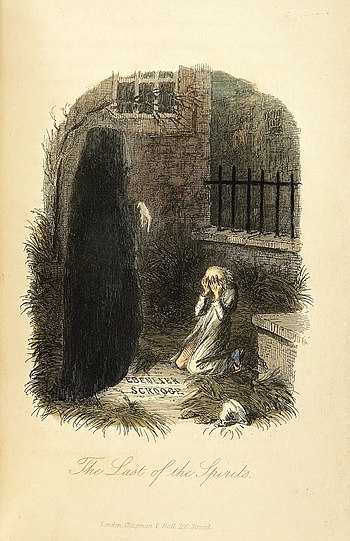 Ebenezer
Scrooge is a significant symbol in Christmas celebrations. When we think about the stingy old humbug, we
know exactly what Christmas isn’t. That
is sad. It completely ignores Scrooge’s story. Our
symbol forgets that Charles Dickens wrote more than a couple of pages about the
old man. We remember Scrooge in chapter
one, but we forget Scrooge’s response to his visitors and thereby we forget
something key. Scrooge is not the villain
of A Christmas Carol. Instead, Scrooge is the confessed – and just
as importantly reformed – villain of A
Christmas Carol. Scrooge demonstrates
that injustice requires a villain and that one way for justice to happen is for
the villain to stop being the villain.
Ebenezer
Scrooge is a significant symbol in Christmas celebrations. When we think about the stingy old humbug, we
know exactly what Christmas isn’t. That
is sad. It completely ignores Scrooge’s story. Our
symbol forgets that Charles Dickens wrote more than a couple of pages about the
old man. We remember Scrooge in chapter
one, but we forget Scrooge’s response to his visitors and thereby we forget
something key. Scrooge is not the villain
of A Christmas Carol. Instead, Scrooge is the confessed – and just
as importantly reformed – villain of A
Christmas Carol. Scrooge demonstrates
that injustice requires a villain and that one way for justice to happen is for
the villain to stop being the villain.
This
essay is best read after reading the novel and will reveal significant plot
points.

